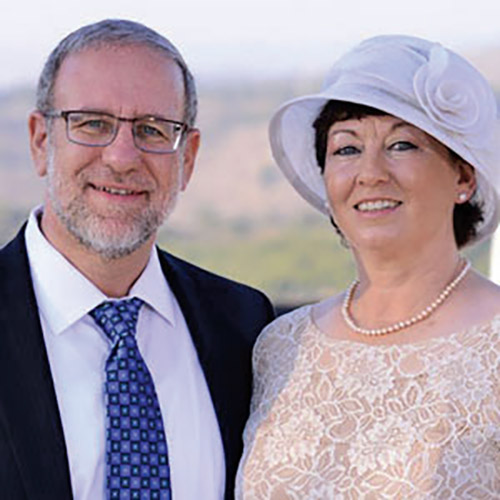

A prolific scholar and lecturer like Rabbi Kahn needs no introduction, and his books have already earned their place on the Jewish bookshelf decades ago. His latest work, as you might expect, is no different.
This book features one or two essays for each parsha in Sefer Bereishit. As is Rabbi Kahn’s learned style, the discussions are always well-sourced, easy to read, and not too complicated. Yet, in this simplistic fashion, Rabbi Kahn is able to draw big ideas from the Scriptures and midrashim.
Almost exclusively using traditional sources, Rabbi Kahn paints a vivid picture of Biblical personalities and their ideologies. For example, in the very first essay, Rabbi Kahn demonstrates how the dispute between the brothers Cain and Abel centers on whether recognizing each individual’s uniqueness must, per force, lead to equality. Cain obviously felt that it should, while Abel understood that although every person is unique, this does mean that every person is equally important.
Drawing on Kabbalistic sources that connect Abel to Moses, Rabbi Kahn then continues to show how this difference of opinion arose once again in the dispute between Korah and Moses, with Korah adopting Cain’s position, and Moses, Abel’s. Ultimately, Rabbi Kahn concludes that the mutual appreciation Moses had for his own brother Aaron served to rectify and reconcile this controversy, as both brothers recognized and appreciated the other’s abilities and role.
When discussing Noah, Rabbi Kahn employs a myriad of sources that point to the idea that while Noah was personally a righteous individual, he is still criticized for failing to positively influence others. In other words, Rabbi Kahn shows how the insulated tzaddik was a righteous person vis-à-vis the rest of his generation, but nonetheless functioned as a loner who could not affect the world (both before and after the Deluge).
In another essay, Rabbi Kahn introduces us to Abraham’s inner conflict over God’s command to offer Isaac as a sacrifice. On the one hand, Abraham devoted his entire life to spreading the idea of kindness and shooting down the notion that religious worship ought to be at the expense of other people (i.e., human sacrifice). Yet here, God actually told him to slaughter his own son. As Rabbi Kahn explains it, by giving Abraham this commandment, God was actually providing a major service to Abraham: He gave Abraham a chance to add a new dimension to his way of worship. Until now, Abraham’s relationship with God was one of love, but now God is allowing him the opportunity to relate to Him through “justice” as well.
Conversely, Isaac—whose worship of God is best characterized as an exercise in “justice”—also gains from this encounter. This is because once Isaac offered to give up his life so that his father can fulfill God’s command, he now has a special merit that he would later use to arouse God’s “mercy” in saving the Jewish people. Thus, Akeidat Yitzchak was a chance for both Abraham and Isaac to add another edge in their service of God, and make their religious experience ever more complete.
Most of Rabbi Kahn’s ideas are totally in line with classical Jewish thought, but sometimes he proffers some novel ideas. For example, in his essay to Parshat Bereishit, Rabbi Kahn dares to suggest that Adam had human ancestors who were devoid of souls. He bases this supposition on Maimonides’ assertion that Adam had descendants who lacked a human soul, and extends this to possibly ancestors as well.
In discussing Abraham’s discovery of God, Rabbi Kahn highlights Terah’s possible influence over his son as leading him to monotheism. He notes that Terah was the first person in the Bible to name a child after its grandfather (i.e., Terah’s father was named Nahor, and Terah’s son was named Nahor as well). This, Rabbi Kahn proposes, may be a symptom of Terah’s general tendency to seek out the origins and roots of things, which Abraham took to the nth degree when realizing that God is the source of all.
All in all, Rabbi Kahn’s work reads like a facilitated discussion of the important sources related to each parasha. In this volume, almost all the sources to which Rabbi Kahn refers are cited in full, with the original Hebrew text and an accompanying English translation. This work can be enjoyed by the layman seeking to add another layer to his understanding of the parasha, and by the rabbi looking for a compendium of sources and materials on which to base his sermons.
While one can always quibble about certain points in Rabbi Kahn’s essays, the overarching discussions are always illuminating and provide fodder for further dialogue. Indeed, as Rabbi Zev Leff says about Rabbi Kahn’s work, it is “interesting and exciting—gourmet food for thought.”
�
Rabbi Reuven Chaim Klein wrote the books “God versus Gods: Judaism in the Age of Idolatry” (Mosaica Press, 2018) and “Lashon HaKodesh: History, Holiness, & Hebrew” (Mosaica Press 2014). He is a member of the RCA and currently works as a freelance writer/editor/translator for research in Torah-related projects. He studied at Yeshiva Gedolah of Los Angeles, Yeshivas Mir in Jerusalem, and Beth Medrash Govoha in Lakewood, NJ, and now lives in Beitar Illit, Israel, with his wife and children. He can be reached via email at rabbircklein@gmail.com.









